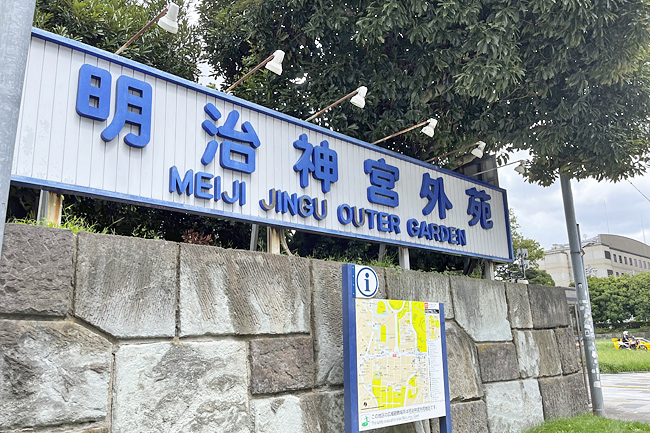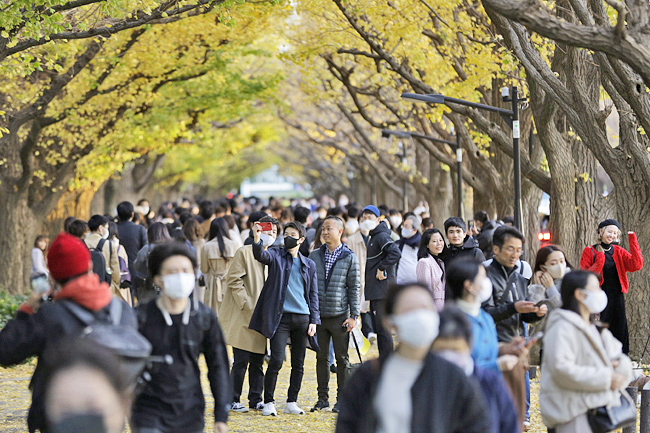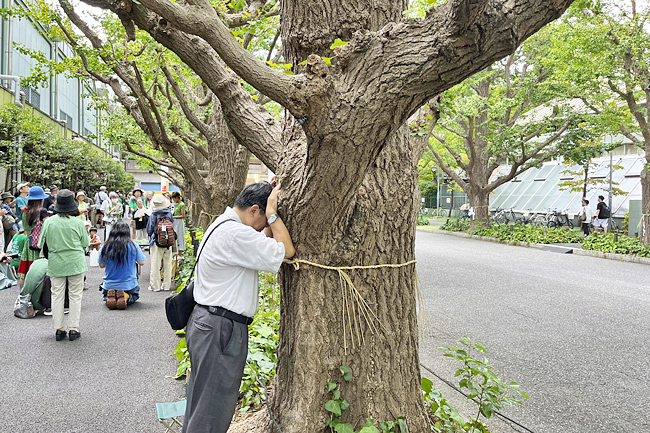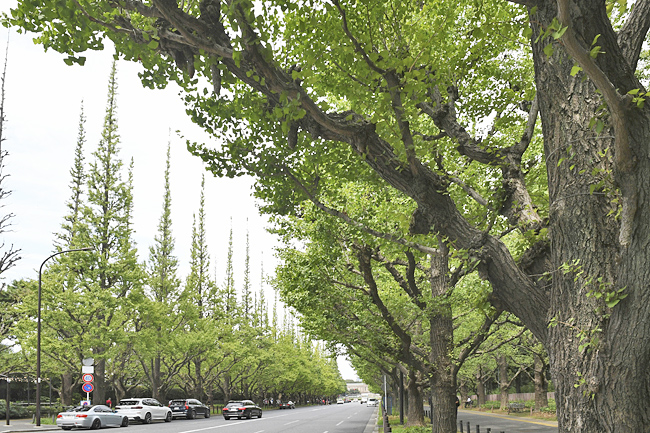TOKYO (AP) – Tokyo’s Jingu Gaien park area has been placed on a ‘Heritage Alert’ list by a conservancy body that assesses international monuments and historic sites. The conservancy says the planned redevelopment will lead to “irreversible destruction of cultural heritage” with thousands of trees being felled.
The plan approved earlier by Tokyo Governor Yuriko Koike would let developers, led by real estate company Mitsui Fudosan, build a pair of 200-metre (m) skyscrapers in Jingu Gaien, add a smaller 80m tower, fell trees in one of Tokyo’s green areas, and raze and rebuild a historic rugby venue and an adjoining baseball stadium where United States’ (US) Baseball legend Babe Ruth played.
The park area is renowned for more than 100 ginkgo trees that line a long promenade, and was established 100 years ago to honour the Meiji Emperor. Botanists say the ginkgo trees will be under threat from any new construction.
The International Council on Monuments and Sites – known as ICOMOS, which works with the United Nations body United Nations Educational, Scientific and Cultural Organization (UNESCO) – issued the alert yesterday and addressed its concerns in an open letter to 18 politicians, business and community leaders.
They include: Japanese Prime Minister Fumio Kishida; Tokyo Governor Koike; president and Chief Executive Officer (CEO) of Mitsui Fudosan Takashi Ueda; chief priest of the Meiji Jingu Shrine Michinari Kuiyo.




The letter also went to political leaders in the central Tokyo wards of Shibuya, Shinjuku, and Minato.
“Overall, more than 3,000 trees will be destroyed, with more than 500 of those estimated to be over 100 years of age,” the open letter says.
“ICOMOS regards this as an irreversible destruction of cultural heritage, and an unacceptable loss of open space and mature heritage trees at a time when the world response to climate change recognises the critical importance of maintaining urban open spaces and all parts of the urban forest.”
The project has gathered mounting opposition from area residents, famous Japanese novelist Haruki Murakami and the late musician Ryuichi Sakamoto.
Several lawsuits have also been filed in a bid to stop the project, and earlier this month the pop-rock group the ‘Southern All Stars’ put out a song titled the The Song of the Forest lamenting the park’s demise.
The band’s songwriter and vocalist Keisuke Kuwata said he wrote the song to honour Sakamoto, who composed a letter to Koike shortly before his death earlier this year, opposing the redevelopment.
The lyrics include a phrase that suggests the lack of transparency.
“I’ve always, always thought, things are decided when we don’t realise it.”
Separately, a group of 80 including artists, architects, and actors have come out in opposition to the project, writing of their attachment to the beloved park area.
The heritage body asks the city “to immediately halt the urban development project” and calls for a redo of the city’s environment assessment, which ICOMOS says contains “numerous errors and unscientific methodologies”.
The letter also says “little or no information” was provided to the public and urges “diverse stakeholders” to decide on the future of the park.
ICOMOS also asks that the Meiji Jingu Shrine withdraw from the project “considering that Jingu Gaien was created thanks to the voluntary labour provided by citizens on the understanding” that the park space would be maintained “for eternity”.
At the heart of the matter is who controls public park space and the role of private developers, politicians, and the public in deciding how valuable land parcels are used. Some have likened the project to building skyscrapers in the middle of New York’s Central Park.
About 1,500 trees were chopped down in the same area to build the USD1.4 billion stadium for the delayed 2020 Tokyo Olympics. Hosting the Games allowed the city to change zoning laws, permitting developers to further encroach on the park area. Developers have argued the baseball stadium and rugby venue cannot be renovated and must be razed.
However, Koshien Stadium near Kobe, built in 1924, has been renovated over the last 15 years. Fenway Park (1912) in Boston, US and Wrigley Field (1914) in Chicago, US – both in dense urban areas – have been renovated and are still viable for two of Major League Baseball’s most famous teams.
Meiji Kinenkan, a historic reception hall, dates from 1881. It’s still in wide use in Jingu Gaien, with no calls for its demolition.






